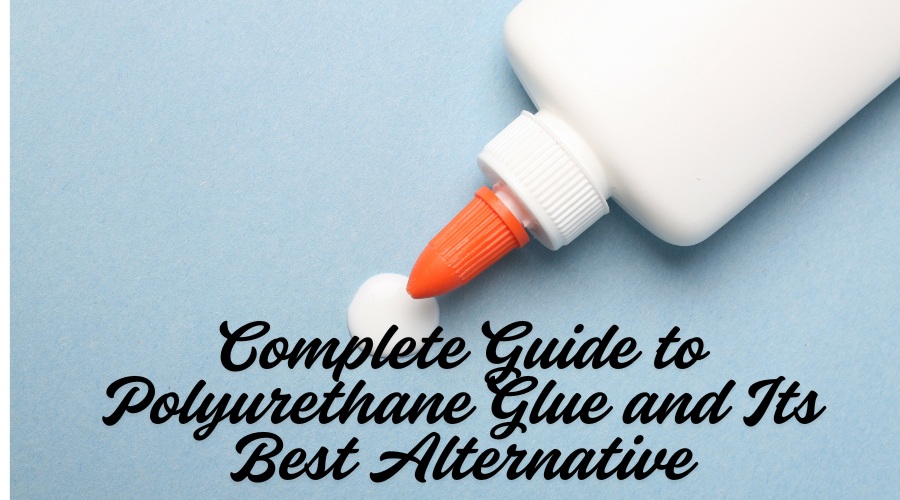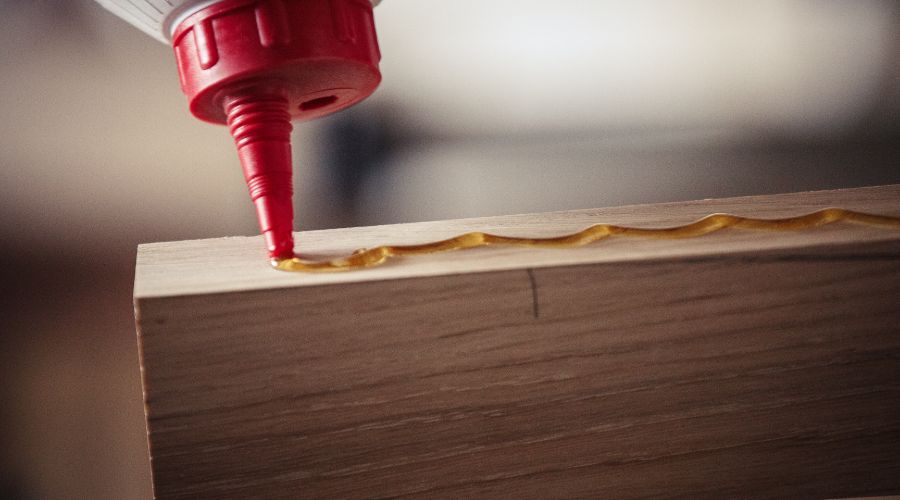
When it comes to bonding materials together for DIY projects, construction, or industrial use, polyurethane glue is a top contender. Known for its strength, versatility, and waterproof properties, it has carved out a vital place in workshops and manufacturing plants around the world. But is it always the best option? In this ultimate guide, we'll explore everything you need to know about polyurethane glue—how it works, where it excels, where it might fall short, and, importantly, a powerful alternative that might just be a better fit for your next project.
Polyurethane glue is a type of adhesive made from polyurethane polymers. It reacts with moisture to cure and forms a strong, durable bond. Once cured, it becomes waterproof and resistant to heat and solvents, making it ideal for outdoor projects, woodworking, construction, and even automotive repairs.
This glue comes in both one-part and two-part formulas. The one-part polyurethane adhesive is more commonly available and easier to use. It requires moisture to cure, so a slightly damp surface often helps it set more effectively. On the other hand, two-part polyurethane glues involve mixing a resin with a hardener, giving more control over curing time and performance.
Let's break down the major advantages that have made polyurethane glue a favorite among professionals and hobbyists alike:
Polyurethane glue bonds with a wide range of materials—wood, metal, plastic, concrete, ceramics, glass, and more. This makes it a go-to solution for multi-surface bonding needs.
Once cured, the glue becomes highly resistant to water, establishing it as a go-to option for outdoor furniture, decking, roofing, and even boat repairs.
The bond strength is impressive. It expands as it cures, seeping into tiny crevices and pores, creating a tight grip that's hard to break.
It can resist extreme heat and exposure to many chemicals, making it perfectly suited for industrial applications.
 Drawbacks of Polyurethane Glue
Drawbacks of Polyurethane GlueNo product is perfect, and polyurethane glue has its fair share of limitations:
It foams as it cures, which can make it difficult to control, and may require sanding or trimming after drying.
Because of the expansion, the materials being bonded must be clamped firmly during curing to maintain proper alignment.
Once opened, polyurethane glue can harden quickly in the container, even if it's sealed, reducing its longevity.
The fumes can be irritating, and protective gear is recommended during use. Always use it in a well-ventilated area.
Thanks to its strong bond and resilience, this glue is used across many industries:
Woodworking: Creating furniture, cabinets, and hardwood floors.
Construction: Bonding tiles, stone, or insulation panels.
Automotive: Sealing windshields and body panels.
Marine: Fixing boats or docks due to their water resistance.
If polyurethane glue doesn't meet all your needs, consider epoxy resin glue as a high-performance alternative.
Stronger Bond on Some Materials: Especially effective on metal, plastic, and glass, where polyurethane might struggle.
No Expansion: Offers a neater application without foaming or swelling.
Longer Working Time: Allows you more time to align and adjust materials before they are sets.
Greater Shelf Life: Epoxy tends to last longer when stored properly.
However, it's worth noting that epoxy usually takes longer to cure and might require precise mixing, which can be a downside in fast-paced environments.
To get the most out of this adhesive:
Dampen Surfaces: A little moisture helps the glue cure better and form a stronger bond.
Use Clamps: To keep parts aligned and counter the glue's expansion.
Wear Gloves: It sticks to the skin very well and can be hard to remove.
Clean Excess Immediately: Wipe off any squeeze-out before it cures.
Seal the Bottle: Store in a cool, dry place to extend shelf life.
As more users seek eco-friendly adhesives, water-based glues, soy-based resins, and hot melt adhesives are gaining popularity. While they may not match polyurethane glue in terms of industrial strength, they are safer and more sustainable for light-duty applications.
Polyurethane glue is undoubtedly one of the most versatile and powerful adhesives available today. It shines in situations where strength, weather resistance, and material diversity are top priorities. However, it's not without its flaws, especially when it comes to application control and shelf life.
If you're looking for something that offers a cleaner application, stronger bonding on non-porous surfaces, or a longer working time, epoxy resin glue may be your best alternative. Both adhesives have unique benefits and drawbacks, so the choice comes down to the demands of your project.
In short, understanding these adhesives empowers you to make smarter choices, avoid costly mistakes, and get professional-quality results—whether you're building a deck, repairing a boat, or creating fine furniture.
1. Is polyurethane glue stronger than epoxy?
It depends on the materials. Polyurethane glue is stronger for porous surfaces like wood, while epoxy generally provides better strength on non-porous surfaces like metal and plastic.
2. Can polyurethane glue be used outdoors?
Absolutely! It's waterproof and weather-resistant, making it ideal for outdoor furniture, decks, and other exterior applications.
3. How do I clean up polyurethane glue before it cures?
Use a moist cloth to wipe away excess glue immediately. Once cured, it becomes much harder to remove and may require sanding or scraping.
4. Is polyurethane glue toxic?
It can release fumes that may irritate the eyes and respiratory system. Use gloves, goggles, and ensure proper ventilation during application.
5. What is a good alternative to polyurethane glue for crafts?
For crafts and light-duty projects, white glue, hot glue, or even double-sided tape might suffice. For stronger bonds, epoxy resin is a reliable alternative.